Articles
IoT Current consumption monitoring system
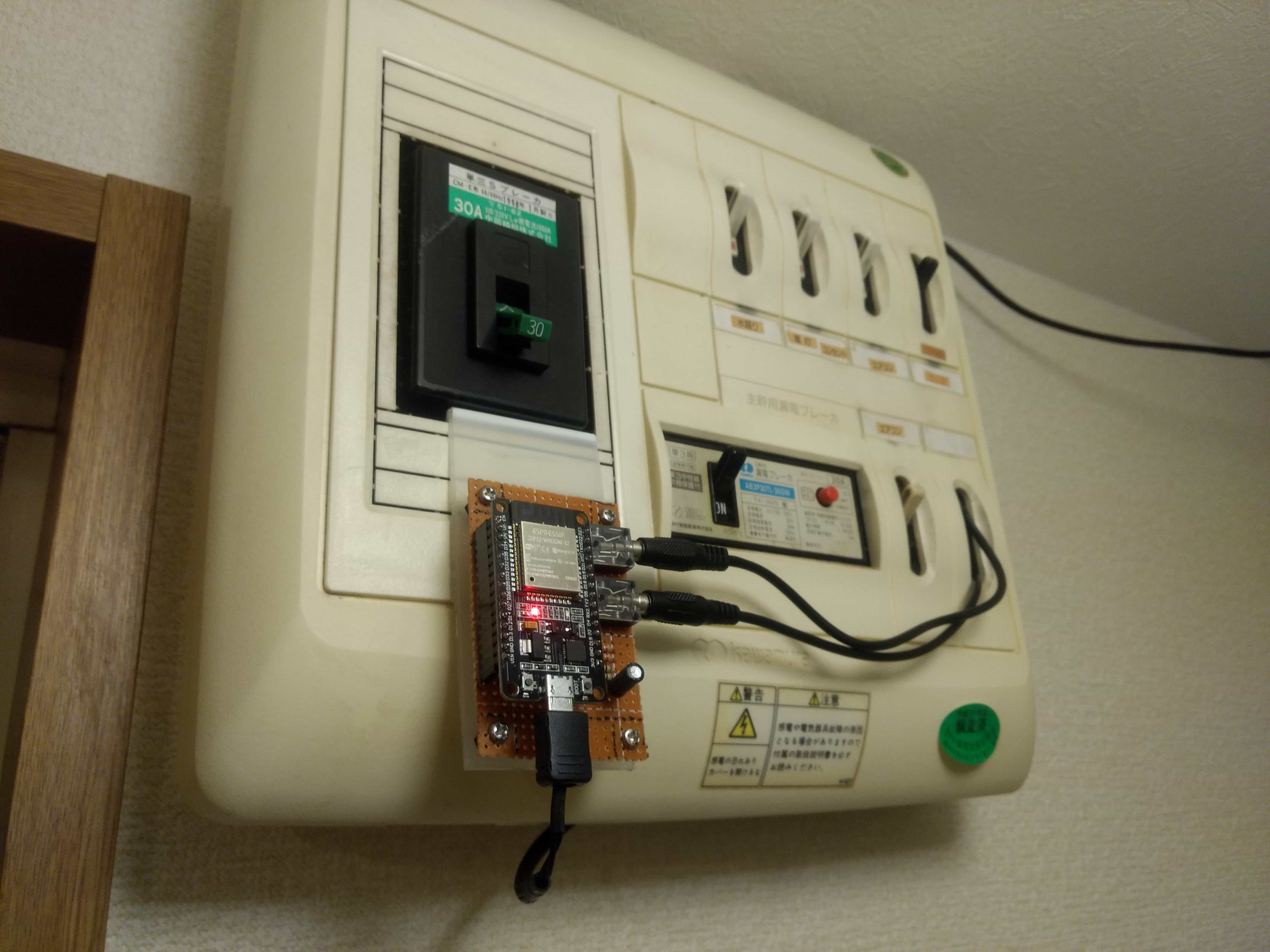
When you don't know how much power your air conditioner draws, it's easy to leave it running without feeling too guilty. And then the electricity bill comes...
IoT EM4305 RFID Reader
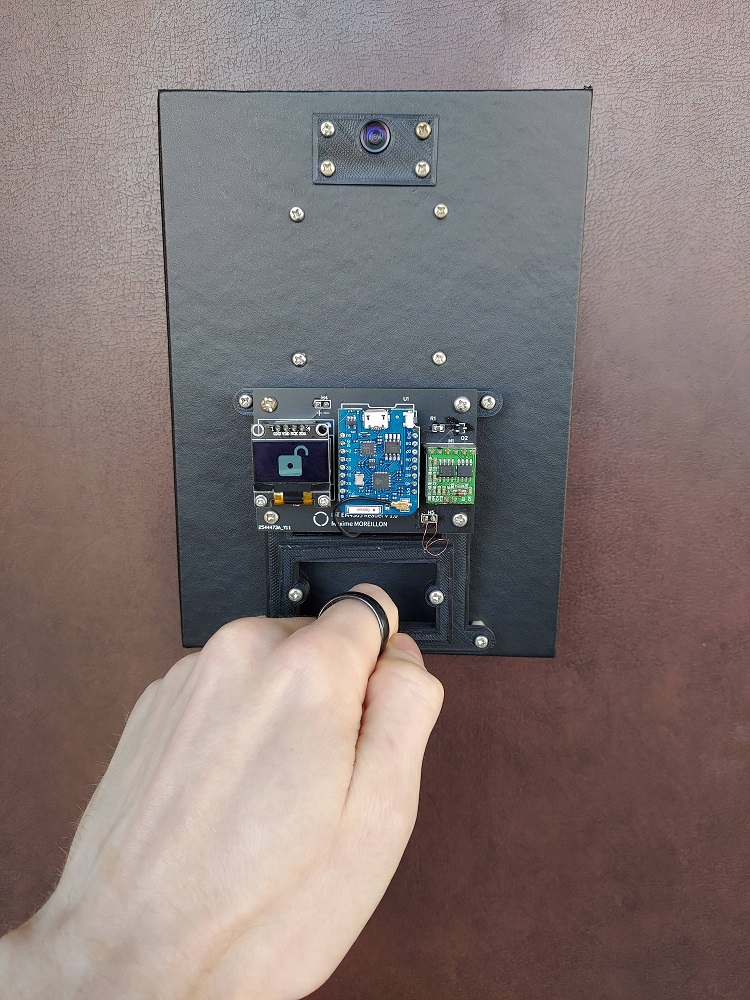
RFID tags come in various forms and sizes, from standard plastic cards to chips that can be implanted in one's hand. I got particularly interested in RFID rings, which can be purchased online for less than USD 20$. Those are based on EM4305 chips, which require a compatible reader. Thus, I designed an IoT EM4305 reader that can exchange data over MQTT with other devices.
IoT Kernel
Over the years, I have written firmwares for various IoT devices such as lights, locks or heaters. Those firmwares would generally handle a common set of basic functions like managing wifi connection, serving a configuration web interface over HTTP or exchange MQTT messages. However, having to implement and maintain those functions for each individual firmware quickly became tedious work. Consequently, I decided to write a library to handle all those basic functions. This library is used as a base for IoT device firmwares, on top of which device-specific logic can easily be added.
IoT LED controller
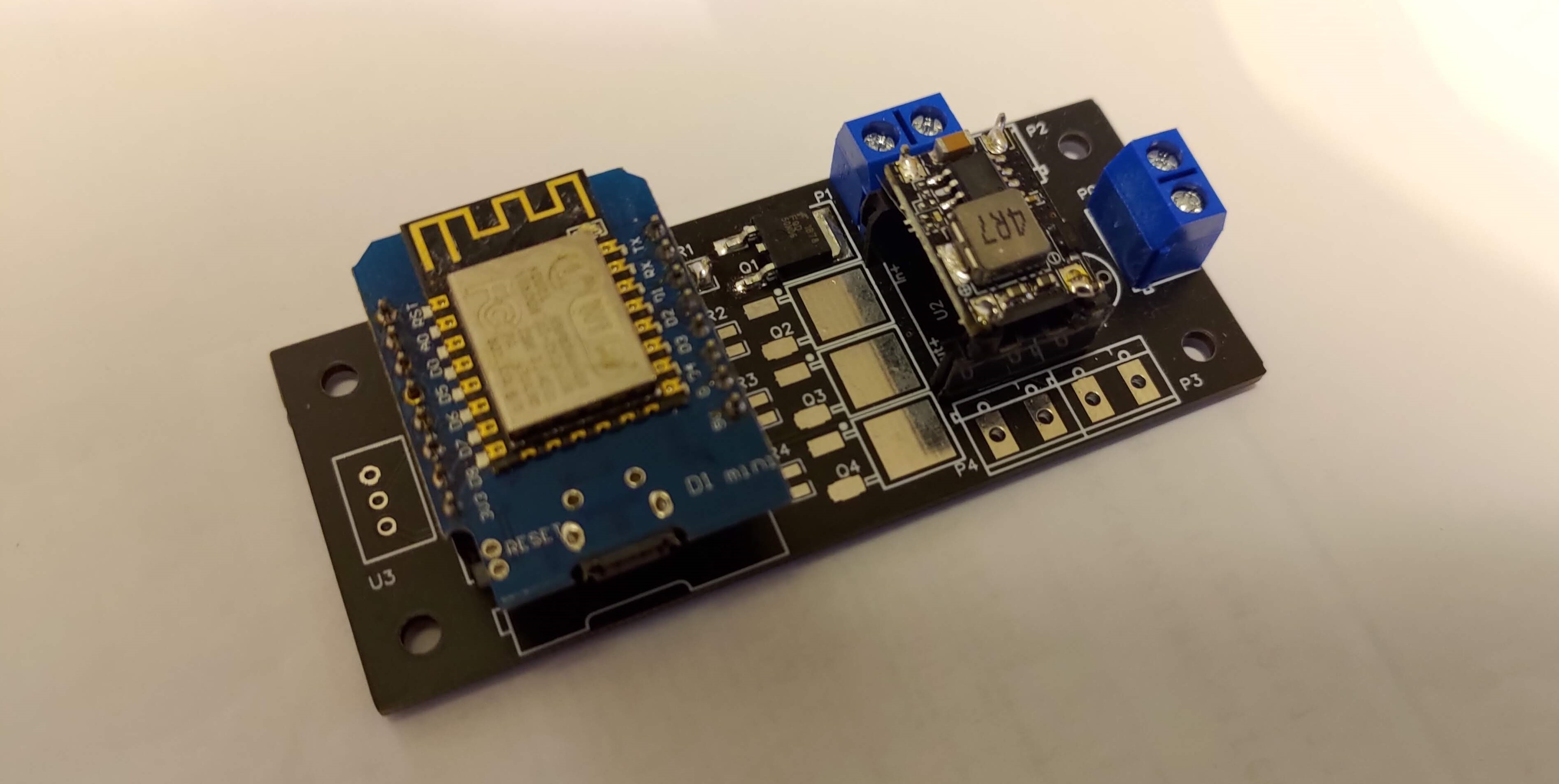
Smart lights are usually some of the first appliances to be added to a smart home. Although those can nowadays be purchased easily from various brands, I wanted to have my own hardware so as to integrate it better with other devices and software. Thus, I decided to an IoT LED controller that I can use in various projects where lighting has to be controlled via network protocols.
IoT RFID reader
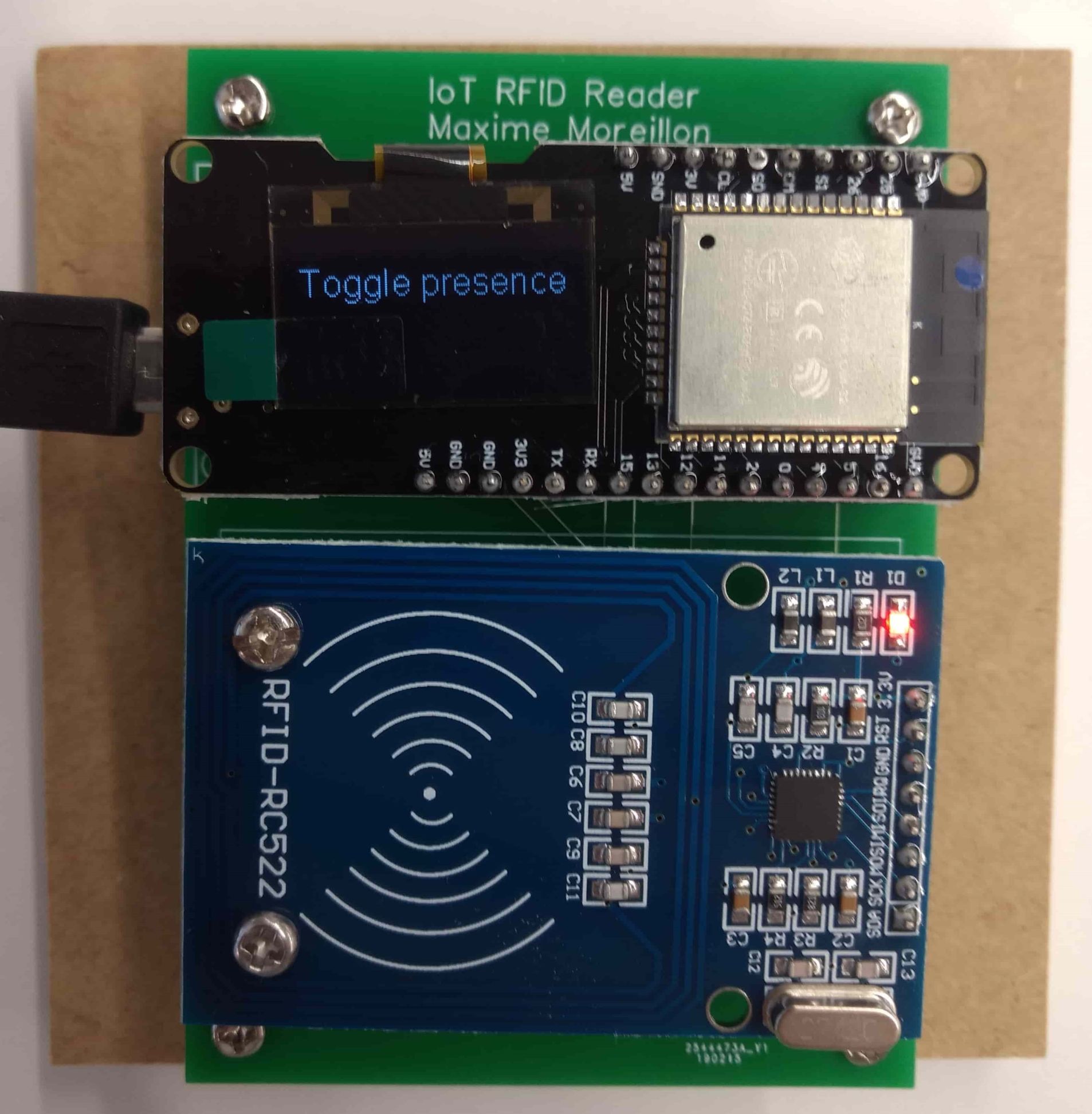
RFID is a conveninent technology for access control and authentication. In this project, I connected an RC522 RFID reader to an ESP32 in order to use it for IoT applications. Additionally, to provide feedback to the user, the ESP32 is also connected to an SSD1306 OLED display and a buzzer. I chose an ESP32 over an ESP8266 simply because of the amount of GPIOs required.
IoT air conditioner controller
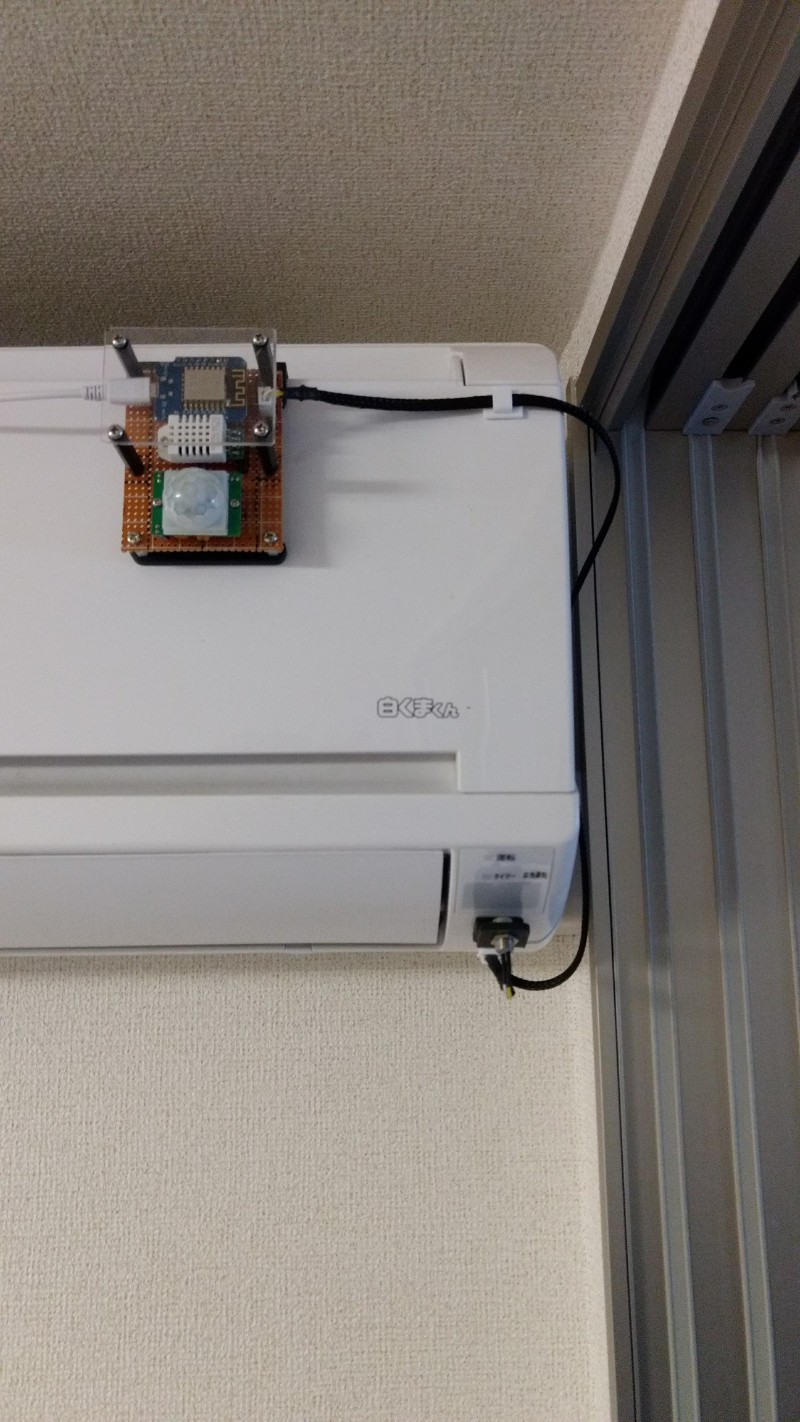
Air conditioners consume a fair amount of electricity. As such, forgetting to turn one off before leaving one's home can result in an expensive electricity bill. This is a Wi-Fi enabled controller for air condtioners, which can turn the unit on or off according to MQTT messages. It is built around an Wemos D1 mini and interfaces with the AC using an IR LED.
IoT ceiling lights

An IoT RGBW LED controlled via MQTT with integrated motion and illuminance sensor.
IoT fingerprint reader

I recently replaced the RFID ring reader that I use to unlock my front door with an IoT fingerprint reader. An obvious advantage is that I risk losing my finger way less than a ring.
IoT heater controller
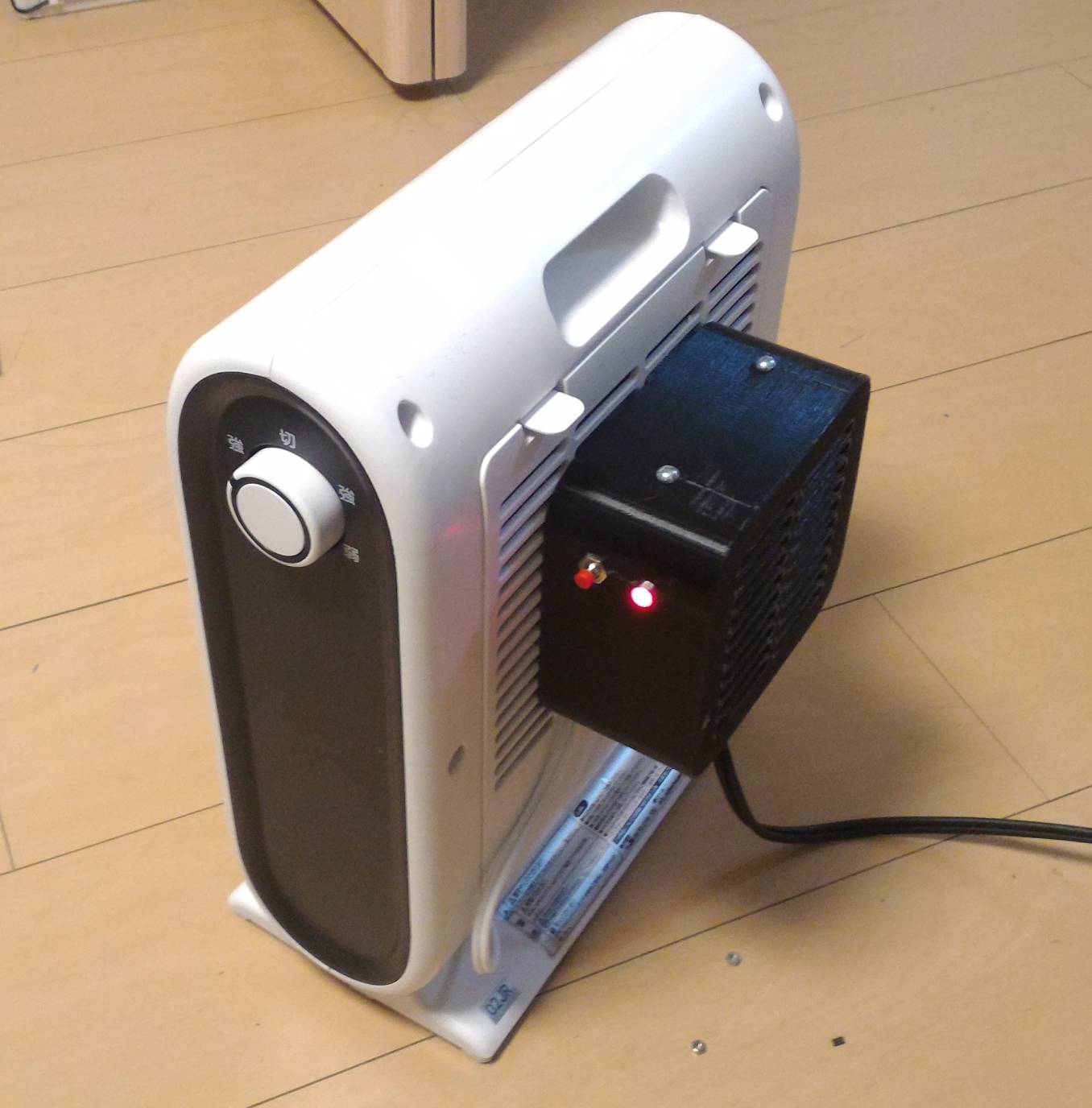
The thermal insulation of my apartment not being the best, I decided to buy an electric heater in order not to freeze during cold winter nights. However, the one I got was probably too powerful for my needs and letting it run for too long would heat up my place too much. Thus, I added a wifi enabled controller to it so its operations are controlled by my home automation system.
IoT infrared controller
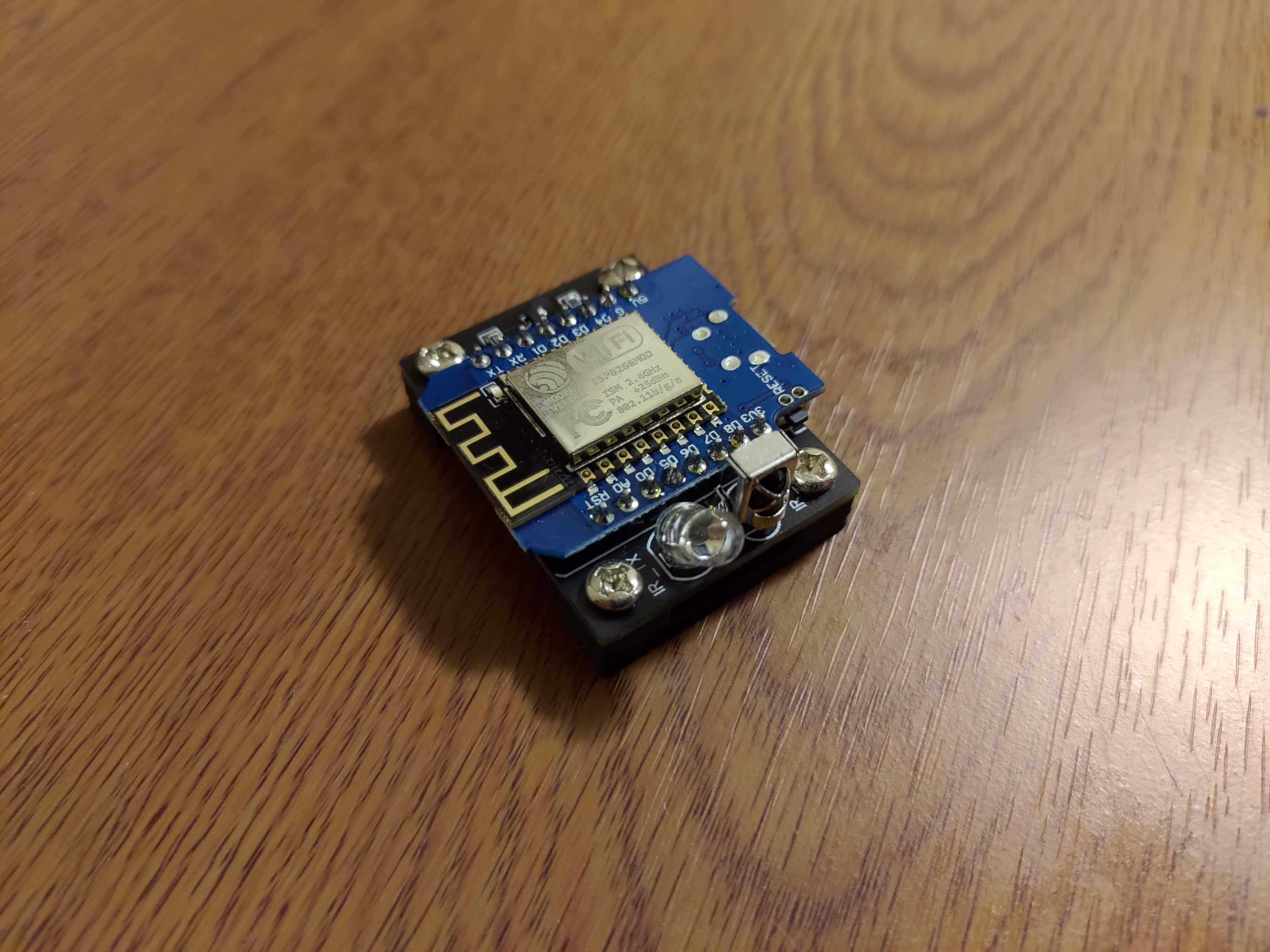
Although probably in the decline, infrared is a common way to remotely control household appliances such as air conditioners or TVs. Being able to turn on an AC unit without leaving the sofa is definitely comfortable, but sometimes it would be even better to be able to do it before even getting home. In order to control those various appliances, I designed a simple WiFi controlled IR emitter.